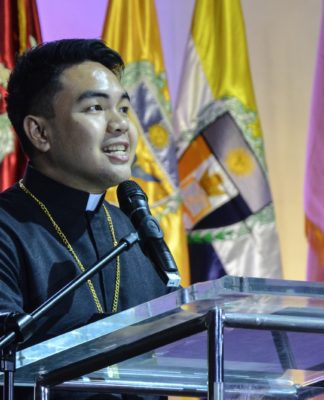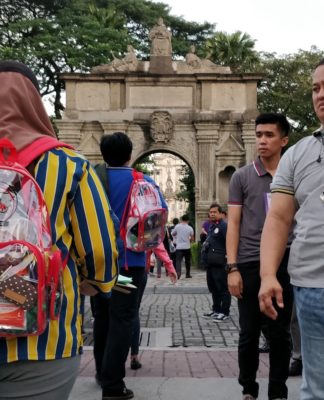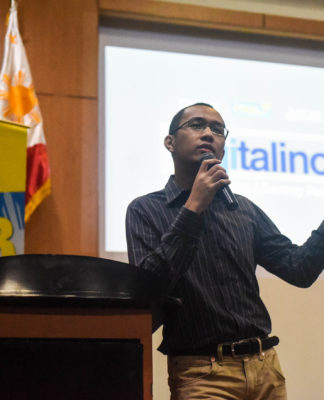THIS one gets a thumbs down.
A number of doctors at the Faculty of Medicine and Surgery are opposing a plan to require them to log on to a biometric “thumb-scanning” system to monitor absences and tardiness in class.
Although the system is not yet operational, physician-lecturers said the proposed system will be inconvenient.
The biometric system will require faculty members to personally “bundy in and bundy out” for their attendance by scanning their fingerprints on the machine.
Medicine Assistant Dean Dr. Emelita Tan-Gan said the office simply wanted to simplify the process. While Medicine does not have problems with the attendance of instructors, Gan said the dean’s office was having a hard time monitoring faculty members.
“The problem is that we have around 300 faculty members and, unlike in other colleges, there are no fixed rooms for teaching and in clerkship,” Gan said.
“The faculty council has thought of the biometric system. We asked the Office of the Academic Affairs and Research if we can do it, and they had no objection. It’s the Faculty of Medicine and Surgery which initiated it,” Gan said.
Sought for comment, Dr. Bernardo Conde, faculty association president, said: “We did not have the choice, because it was basically a policy that came from the dean’s office.”
“We asked if the policy was university-wide. If it came from the dean’s office and it’s university-wide, it would seem like they’re working on it as a group,” he said.
Academic Affairs chief Clarita Carillo said the policy did not come from her office, adding that the biometric system was not applied university-wide for faculty members, but only for support staff members.
“To date, the biometric system remains to be the initiative of the respective units,” Carillo said. “It is up to them whether or not they will choose to adopt this as a means to check faculty attendance.”
Anesthesiologist and lecturer Dr. Anniela Yu-Soliven said a bundy system would make it hard for doctors to respond to emergency cases.
“As practicing physicians we are dealing with lives, and [in] dealing with lives, we cannot particularly predict [when] an emergency will arrive,” Soliven said.
Soliven, along with other faculty members, said the change in the system of checking attendance would be in conflict with the strategic juggle of hospital and academic responsibilities of teaching doctors.
She noted that during a meeting attended by some Medicine faculty members, the consensus was against the use of a biometric system as each department of the faculty has its own way of dealing with problems on how to handle students.
Conde said a survey initiated by the Medicine faculty association, which had 55 percent of the total population of physician-lecturers as respondents, found that around 80 percent disagreed with the proposed system.
Soliven said the Department of Anesthesiology, for instance, allows make-up classes.
“For me to say that I have not short-changed [students] if I cannot attend my class for a clerkship load, I schedule the makeup on another day or another hour when the students are available,” Soliven said. “Now, with biometrics, it will definitely reflect [on] me as being an absentee for that particular load.”
However, Gan said the dean’s office will be giving consideration to emergency cases as long as absences or tardiness does not become habitual.
“There are few who have expressed their negative reactions like remarks that the whole University should implement the biometrics,” Gan said.
In 2005, the College of Architecture started using the biometric system to monitor professors’ daily time records. The Faculty of Pharmacy also tried to implement the system two years ago, but majority of the faculty members preferred signing attendance sheets.
“Sad to say it was not acceptable to the faculty members. You must ask them personally on why they disapproved,” Pharmacy Dean Pricilla Torres said.
The Varsitarian tried but failed to get comment from the UST Faculty Union on the biometric system. Ana May R. de la Cruz


















There’s always a saying that “you cannot have your cake and eat it too”. Which is what the faculty in the College of Medicine and Surgery is all about. The “vested interest” in clinical practice, which many of the academicians are claiming is something that needs to get resolved. Do you want to teach or do you want to practice medicine? The proximity of the hospital may not serve well for the medical students who may be short changed with doctors who find it an easy excuse to run out of their classes because they have an “emergency” to attend to. In the U.S., physicians who are connected with the academe are more responsible with their duties in the medical school and do not shuttle back and forth when “duty” calls.
Medical school is akin to graduate school. And the teachers in med school should be treated like those that teach the graduate school. A system wherein the all the teaching staff are considered part-time and therefore can re-schedule classes at their own pace and if they are not available. I hate to say it, but before I retired 2 1/2 years ago, the attendance was a problem already with some co-faculty members who seem to get away with being absent from classes (habitually) and yet got to getting promoted, becoming part of the administration, or even getting paid.
Seriously, “kung may gusto, may paraan. kung ayaw…may dahilan”. And excuses will always find a reason not to do what was right to correct what was wrong.